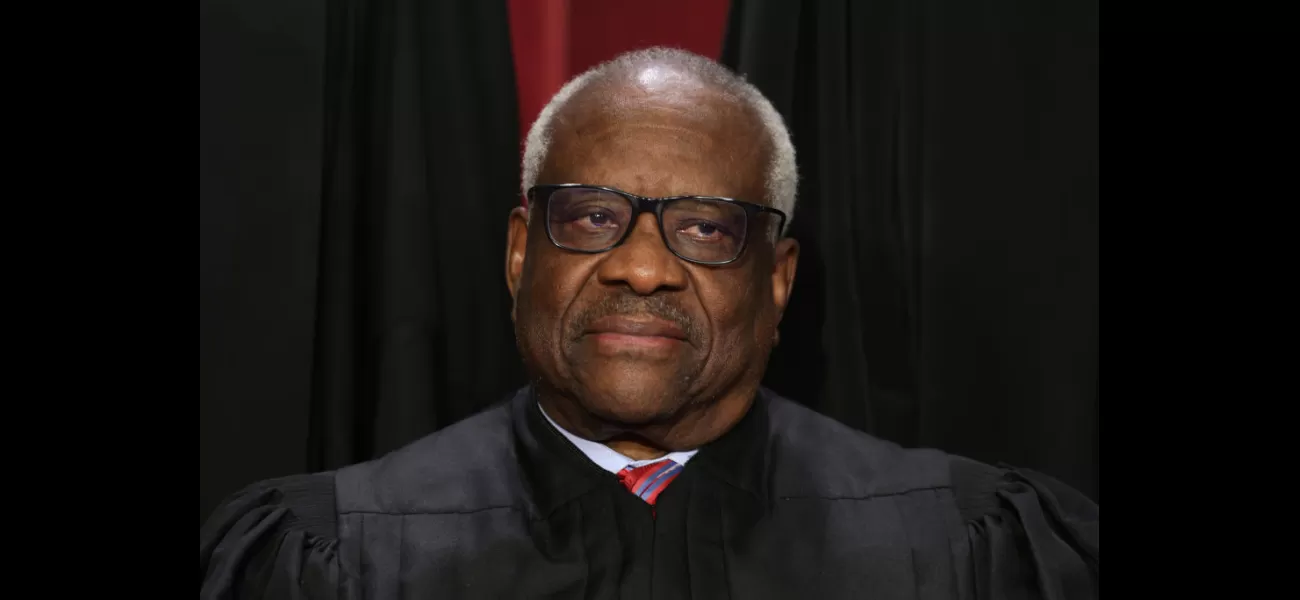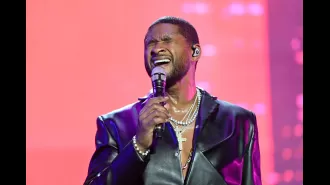Clarence Thomas marks 70th anniversary of Brown v. Board of Education, criticizing Supreme Court for overstepping boundaries.
American University study shows Black and Latino students suffer most from segregated schools.
May 24th 2024.

In a recent discussion, Supreme Court Justice Clarence Thomas expressed his belief that the court may have overstepped its boundaries in a landmark case 70 years ago that prohibited segregation in public schools. Thomas specifically targeted the famous Brown v. Board of Education ruling, which was argued by Thurgood Marshall, the first African American Supreme Court Justice.
Thomas argued that the court's decision to allow South Carolina to continue using a congressional map that has been accused of discriminating against Black voters is evidence of the court's "boundless view of equitable remedies" in the Brown ruling. He believes that the court used excessive judicial power to put an end to racial segregation in the 1950s and 60s.
The Brown v. Board of Education decision, which declared the "separate but equal" doctrine as unconstitutional, was a monumental moment in the Civil Rights Movement. However, it also sparked national outrage and led to protests in places like Little Rock, Arkansas, where nine Black students attempted to enroll in a formerly all-white high school. One of the most well-known examples of this was Ruby Bridges, who became the first Black student to attend William Frantz Elementary School in Louisiana in 1960, accompanied by federal marshals on her first day due to safety concerns.
Unfortunately, despite the progress made by the Brown ruling, recent years have seen a significant increase in racial segregation in schools, largely due to the rise of charter schools and school choice options. A report from American University's School of Education found that this segregation disproportionately affects Black and Latino students, as these schools tend to have fewer resources, struggle with teacher quality, and offer fewer advanced placement classes.
Thomas' stance on the Brown ruling and segregation in schools is not the first time he has made controversial statements about race. For instance, he has previously defended the idea of keeping a predominantly white congressional district in South Carolina, arguing that federal courts should not have the power to create new remedies for discrimination cases.
Furthermore, Thomas has been known to oppose anti-discrimination measures, as seen in his vote to eliminate the 1964 Voting Rights Act in the 2013 case Shelby County v. Holder. He argued that racism in voting was no longer an issue, and that the law was no longer necessary. This aligns with Thomas' conservative ideology, which he has never shied away from, even in the face of criticism.
In fact, Thomas has even faced backlash from the Black community for his views, including his belief that Black people should stop relying on white people or government programs for assistance. He famously stated in a 1998 speech that he refused to be an "intellectual slave," suggesting that Black people who disagreed with his views were not able to think for themselves.
In summary, Justice Clarence Thomas' recent comments about the Brown v. Board of Education ruling and segregation in schools have sparked controversy and reignited discussions about race and discrimination in the United States. While some may agree with his views, others criticize his stance and question his understanding of the ongoing struggle for racial equality.
Thomas argued that the court's decision to allow South Carolina to continue using a congressional map that has been accused of discriminating against Black voters is evidence of the court's "boundless view of equitable remedies" in the Brown ruling. He believes that the court used excessive judicial power to put an end to racial segregation in the 1950s and 60s.
The Brown v. Board of Education decision, which declared the "separate but equal" doctrine as unconstitutional, was a monumental moment in the Civil Rights Movement. However, it also sparked national outrage and led to protests in places like Little Rock, Arkansas, where nine Black students attempted to enroll in a formerly all-white high school. One of the most well-known examples of this was Ruby Bridges, who became the first Black student to attend William Frantz Elementary School in Louisiana in 1960, accompanied by federal marshals on her first day due to safety concerns.
Unfortunately, despite the progress made by the Brown ruling, recent years have seen a significant increase in racial segregation in schools, largely due to the rise of charter schools and school choice options. A report from American University's School of Education found that this segregation disproportionately affects Black and Latino students, as these schools tend to have fewer resources, struggle with teacher quality, and offer fewer advanced placement classes.
Thomas' stance on the Brown ruling and segregation in schools is not the first time he has made controversial statements about race. For instance, he has previously defended the idea of keeping a predominantly white congressional district in South Carolina, arguing that federal courts should not have the power to create new remedies for discrimination cases.
Furthermore, Thomas has been known to oppose anti-discrimination measures, as seen in his vote to eliminate the 1964 Voting Rights Act in the 2013 case Shelby County v. Holder. He argued that racism in voting was no longer an issue, and that the law was no longer necessary. This aligns with Thomas' conservative ideology, which he has never shied away from, even in the face of criticism.
In fact, Thomas has even faced backlash from the Black community for his views, including his belief that Black people should stop relying on white people or government programs for assistance. He famously stated in a 1998 speech that he refused to be an "intellectual slave," suggesting that Black people who disagreed with his views were not able to think for themselves.
In summary, Justice Clarence Thomas' recent comments about the Brown v. Board of Education ruling and segregation in schools have sparked controversy and reignited discussions about race and discrimination in the United States. While some may agree with his views, others criticize his stance and question his understanding of the ongoing struggle for racial equality.
[This article has been trending online recently and has been generated with AI. Your feed is customized.]
[Generative AI is experimental.]
0
0
Submit Comment





